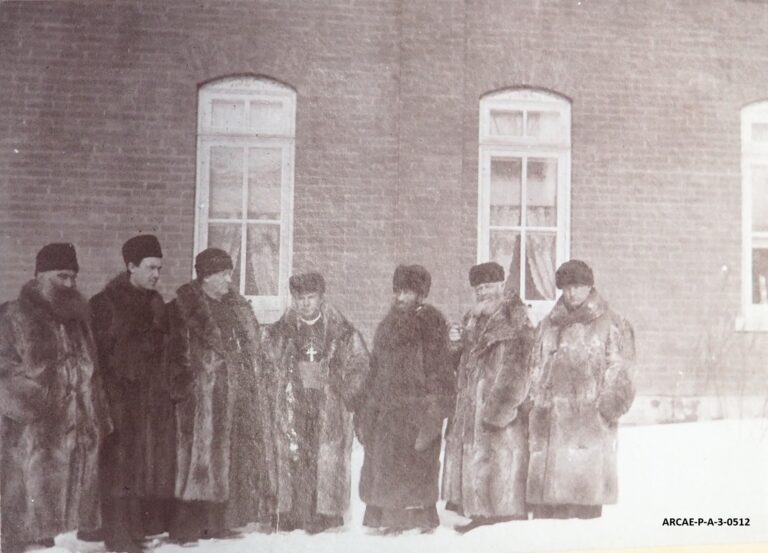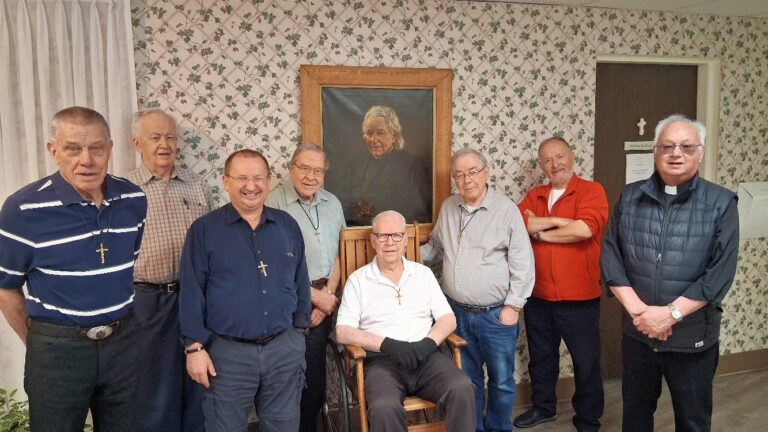Pope Francis’ recent death brings the reality of grief and loss to the Church and the world as his death is mourned. There are many emotions that accompany grief and loss: Sadness, shock, numbness, guilt, loneliness, relief, uncertainty, or anger to name a few.[1] As you heard about the death of Pope Francis, you may have experienced some of these emotions.
Within marriage, couples can experience a lot of grief and loss. Typically, grief and loss are associated with the death of someone you love and care for. However, grief and loss are experienced in many ways: The loss of a job, moving, financial hardships, struggles with infertility, the miscarriage of a child, the loss of friendships, injuries, physical or mental illnesses (and receiving the diagnosis in and of itself), a change in family circumstances or relationships, an unexpected retirement, the death of a pet, and most certainly the death of a close family member or friend. As you and your spouse experience loss and grief within your marriage, how can you support and cherish each other through these challenging times?
Service to Marriage and Family is one of the Archdiocesan Pastoral Priorities.

In Pope Francis’ encyclical Dilexit nos, he reminded us of Christ’s self-surrender unto death, and how “[your] sufferings are joined to the suffering of Christ on the cross. If [you] believe that grace can bridge every distance, this means that Christ by his sufferings united himself to the sufferings of his disciples in every time and place. In this way, whenever [you] endure suffering, [you] can also experience the interior consolation of knowing that Christ suffers with [you]. In seeking to console him, [you] will find [yourselves] consoled.”[2]
Within the midst of suffering, loss, and grief, these words may not feel helpful or like much consolation. Yet, knowing that Jesus suffers with you can remind you that you are not alone, especially since Jesus understands suffering.
Jesus’ loss was great throughout his life: He moved away from family to Egypt when Herod was trying to kill him and then moved again to Nazareth (Matthew 2: 13-23), he experienced the death of St. Joseph, he was rejected by people from his own hometown in Nazareth who also tried to kill him (Luke 4: 14-30), he wept when his friend Lazarus died (John 11: 1-44), he was rejected by the chief priests and officials who wanted him crucified (John 19: 1-16), his apostles let him down by falling asleep in the Garden of Gethsemane and was betrayed by Judas (Matthew 26: 36-50), and he endured his ultimate suffering through his Passion and death (John 18 & 19). This list does not even capture all of it.
If you take the time to think about each of these losses, you can see that Jesus had a very intimate experience with loss and grief, and Pope Francis also shared that Jesus “united himself to the sufferings of his disciples in every time and place.”[3]
As a couple, how can you care for each other in the midst of your losses?
First, you can care for yourselves. Grief requires a lot of energy to process the losses you are both experiencing in your own and different ways. You may feel a loss of energy, upset stomach, difficulty sleeping, headaches, a decreased immune response, appetite changes, depression, or anxiety.[4]
Therefore, it is important to prioritize your basic needs to try to get enough sleep, eat regular and healthy meals, shower, go for a walk or get some exercise, say a small prayer offering your day to God, and take time to rest. Caring for yourselves can help to increase your capacity to cope, even in small ways.
Second, you can both be gentle with yourselves and each other. These are challenging times and require changes on both your parts even if one of you in more impacted by the loss than the other. Taking time to assume that you are both trying your best given the hardship you are both experiencing is important as it can allow you to turn towards each other. You can do this by acknowledging the emotions you are experiencing and sharing your needs with your spouse, while your spouse gets to respond accordingly, and vice versa.
Difficult emotions can be hard to handle. Please know that it is okay to cry, to speak about the loss that has occurred, to express your feelings, to share experiences from the past before the loss occurred, and to do something concrete to honour your loss (like having a Mass said, eating a favourite meal, writing a letter, or some other actions in honour of the loss). These are all ways of acknowledging and expressing the suffering you are enduring.
Third, you can reach out to other people and accept help from others without feeling guilty. This can be an opportunity to allow others to love you and to care for you, and for you to receive the gift of their help, even if that may feel vulnerable. Pope Francis wrote that, “the grief that we feel in [your] hearts gives way to complete trust and, in the end, what endures is gratitude, tenderness, peace; what endures is Christ’s love reigning in [your] lives.”[5] This love of Christ that reigns in your lives can also come from the support and assistance of other people, who you can express gratitude for, and through whom you may experience moments of peace by their presence.
This reaching out could include asking for meals, snacks, help with housework, childcare, rides, errands, a listening ear, a comforting embrace, or prayers to list some ideas. Depending on the loss you are experiencing, seeking additional support through your parish, a support group, or through counselling may be a great assistance. If you are the person being asked to help, you can check out this article about how to help a grieving friend.
Finally, given the nature of your loss, you will need time to adjust to the new circumstances in your life and in your marriage, as a loss is usually accompanied by changes that are enduring. There can also be uncertainty that accompanies a loss. Given this, it may be helpful to both take time to adjust to the new circumstances, to figure out the impacts of the loss in your lives, and the additional changes you may need to make. Even with the death of Pope Francis, there is uncertainty about who the next pope will be and what changes will result within the Church.
It is helpful to acknowledge these feelings. When the feelings of uncertainty arise, especially when you don’t have control over the circumstances, they may be a time to offer a prayer for the Church, yourself, and any losses within your marriage so these may be times to grow in greater trust in God.
As the Church and the world mourns the loss of Pope Francis, and as you and your spouse experience different losses and grief within your marriage, may this be an opportunity to turn towards God and each other to acknowledge the struggle you are experiencing, to seek compassion, gentleness, and kindness from each other and other people in your lives, and forgiveness and understanding when you fall short.
May you be reminded that Jesus understands your suffering, is present with you, and that “the grief that [you] feel in [your] hearts [can] give way to complete trust and, in the end, what endures is gratitude, tenderness, peace; what endures is Christ’s love reigning in [your] lives”[6] even while experiencing the pain of your grief and loss.
For more stories, subscribe to the Window newsletter
-Melissa Guzik is a Registered Psychologist who works in private practice in the Greater Edmonton area. She is the co-author of the Catholic marriage enrichment book and workbook To Know, Love and Serve: A Path to Marital Fulfilment.
[1] Worden, J. W. (2009). Grief counselling and grief therapy: A handbook for the mental health practitioner. 4th Ed., Springer Publishing Company, pp. 18-23.
[2] Francis (2024, October 24). Dilexit nos of the Holy Father Francis on the human and divine love of the heart of Jesus Christ. Dicastero per la Comunicazione – Libreria Editrice Vaticana, #161. https://www.vatican.va/content/francesco/en/encyclicals/documents/20241024-enciclica-dilexit-nos.html.
[3] Ibid.
[4] Gillette, H. (2022, August 29). 8 Coping Mechanisms to Heal from Grief. Psych Central, https://psychcentral.com/blog/good-grief-healing-after-the-pain-of-loss#coping-mechanisms
[5] Francis (2024, October 24). Dilexit nos of the Holy Father Francis on the human and divine love of the heart of Jesus Christ. Dicastero per la Comunicazione – Libreria Editrice Vaticana, #161, https://www.vatican.va/content/francesco/en/encyclicals/documents/20241024-enciclica-dilexit-nos.html
[6] Ibid.




